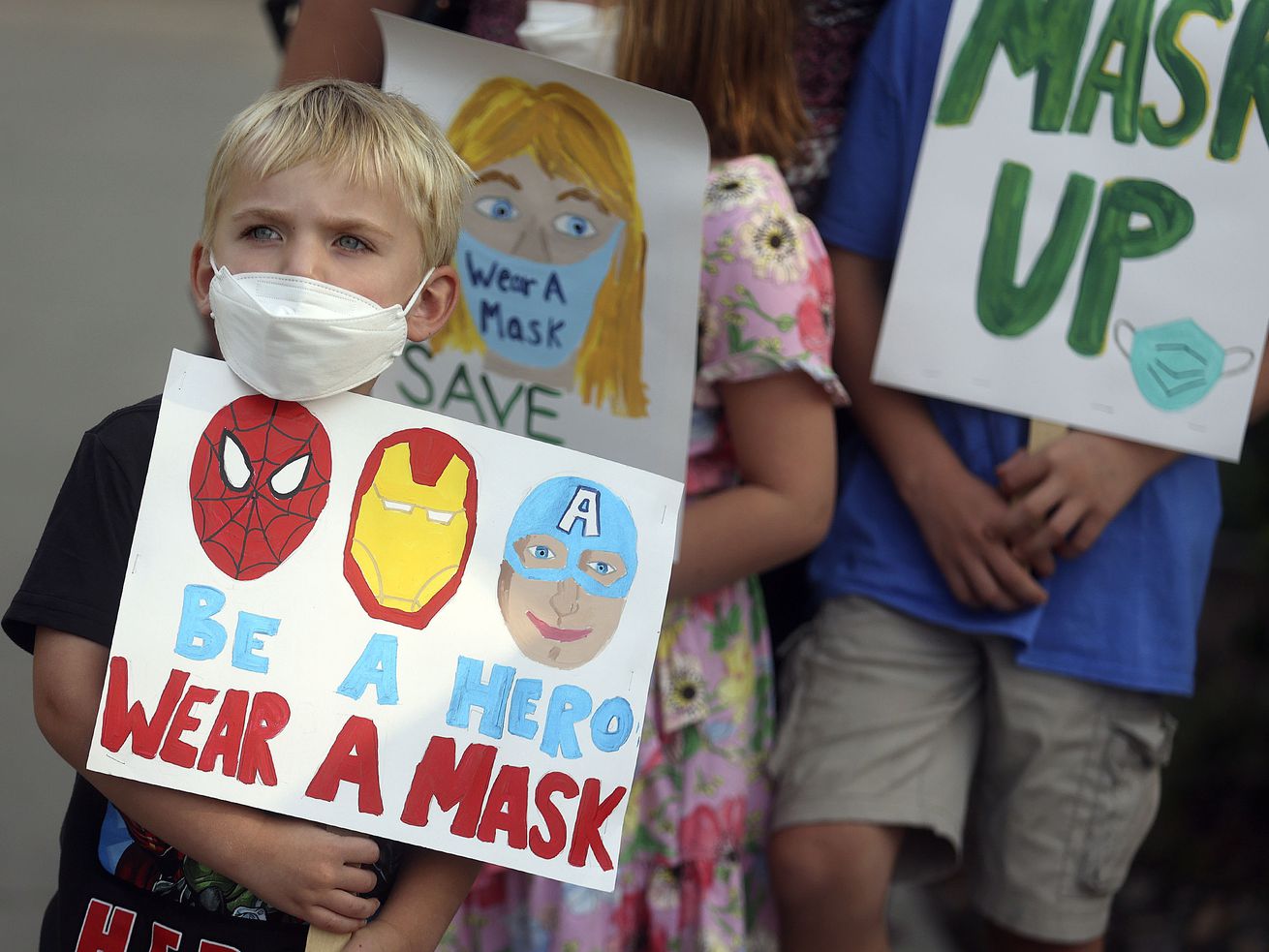
The delta variant will determine whether pandemic politics dominate yet another election cycle in 2022.
The Delta variant of the COVID-19 virus is raging in Utah and elsewhere. That means the emotional debate over mandatory masking and vaccination is also erupting. We explore the impacts on local politics.
The Republican majority on the Salt Lake County Council overrode the decision by Mayor Jenny Wilson and Health Director Dr. Angela Dunn to require masks in public schools in the county. Will there be political repercussions? Is this a precursor to partisan battles in 2022?
Pignanelli: “The numbers are really scary...this is not just a red state or blue state thing... COVID doesn’t care about your politics.”— Kristen Soltis Anderson, GOP pollster. Late last year on a television program, I confidently predicted vaccinations would be the central political issue for 2022. I was 10 percent correct. My errant conjecture assumed most of the population would demand inoculation. The current sizable resistance to “the jab” was unknown. But this dynamic exists and is influencing our culture, workplace, and politics.
We are in uncharted waters as to how a pandemic affects two election cycles. So even thoughtful politicos are risking mindless speculation. (But that does not stop us).
If the delta variant burns out by the fall, then other issues will predominate next election. However, COVID-19 mutations spiking case counts, especially among children, will unleash mammoth emotions this year and next. These include increased battles between officials pushing or objecting to mandates for masking and “vaxxing”. Extremists in both parties will succumb to the temptation of COVID-19 issue litmus tests for candidates, influencing delegate selection in the early months of 2022. Thus, the party conventions of next year could be referenda on government responses, mandates, conspiracies, and anything else related to the virus. Further, Utahns can expect repeat performances of Salt Lake County in other locales.
The pandemic is demonstrating that predictions are easy, but details are hard...especially for politicos.
Webb: It’s unfortunate, but understandable, that the response to the resurgent virus has become a highly emotional political issue. Not much is more contentious than government forcing parents to mask up their kindergarteners.
Neither side has much patience with the other. Some feel strongly that we should force parents to “just follow the science” by accepting mask mandates to protect children and the people they interact with. After all, we require parents to reasonably care for their children. They can’t abuse them or leave them in a hot car.
On the other side are parents and others who say a mask mandate encroaches too far on parental rights. It crosses the line and, in some cases, does more harm than good.
This is not a dry public policy issue. It’s about health, liberty, parental rights and coercion. It makes grown people cry and seethe with rage.
Personally, I believe that masks and vaccinations are critical to slowing this scary new variant and I encourage parents to have children mask up at school. But I don’t think it should be mandated.
Elected leaders appropriately look more broadly than health concerns. They take into account the feelings of constituents and the temperature of the issue. The reality is that we’re at a point in the pandemic, despite the upsurge, where many citizens have had it with masks and limitations.
I worry that a child mask mandate would spark rebellion. A law that many people oppose or ignore is usually a bad law. I encourage parents to mask up their children, but I agree with the County Council that a mandate was wrong.
Is Gov. Spencer Cox or the Utah Legislature likely to further weigh in on local decisions regarding the pandemic?
Pignanelli: The Legislature expended gallons of blood and sweat reconstructing the relationship between state and local governments for emergency situations. An immediate revisit is unlikely.
Gov. Cox is garnering national attention for his emotional but balanced approaches, coaching people to wear masks and obtain a vaccination. Although some right-wing extremists oppose such admonitions, his leadership skills are resonating. Cox is fulfilling the primary role of the state’s chief executive. Consequently, despite any minor bumps his long-term reputation and political capital will be enhanced.
Webb: The Legislature will monitor what happens at the local level and isn’t going to look favorably on jurisdictions that impose mask mandates. Personally, I believe governance closest to the people is the best governance, and I believe local governments, to the extent possible, should run themselves without interference from the legislative branch.
Given the strong feelings on both sides, how can we slow the spread of the Delta variant and potentially worse mutations?
Pignanelli: The fundamentals our parents and kindergarten teachers taught us are now critical to civilization. Of course, these include courtesy, kindness and respect towards others. There are a thousand different ways to apply these basic rules of society in response to the pandemic (wearing masks, evaluating vaccinations, etc.).
Webb: Take personal responsibility. The most important thing is to get vaccinated. Vaccinations are safe and effective. If everyone (or a high percentage) gets vaccinated the other issues go away. It’s discouraging that just when things were getting back to normal, this new variant reared up. But we can’t give up. Gotta keep fighting. Get the shot.
Republican LaVarr Webb is a political consultant and lobbyist. Email: lwebb@exoro.com. Frank Pignanelli is a Salt Lake attorney, lobbyist and political adviser who served as a Democrat in the Utah state Legislature. Email: frankp@xmission.com.